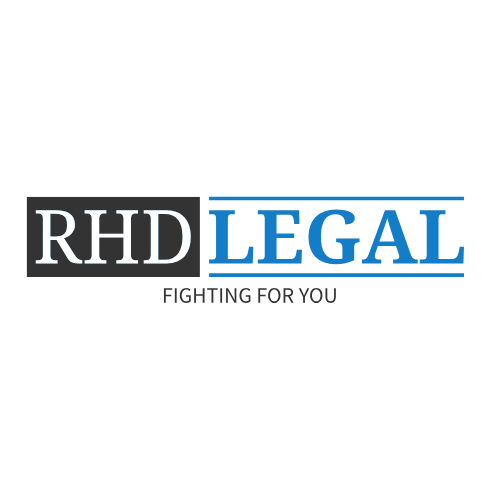
In today’s digital age, nearly everyone has a presence on social media, whether it’s Facebook, Instagram, Twitter, or other platforms. Sharing life updates, photos, and checking in at locations has become second nature for most people. However, if you are involved in a personal injury claim, your online activity could potentially undermine your case. Insurance companies and defense attorneys are increasingly turning to social media as a tool to gather evidence to dispute claims, reduce compensation, or even deny liability altogether.
This article explores how social media can impact your personal injury claim and provides critical advice on how to protect your case by managing your online presence wisely.
How Insurance Companies Use Social Media Against You
When you file a personal injury claim, you are seeking compensation for injuries and losses caused by someone else’s negligence. However, insurance companies are motivated to reduce payouts and often employ tactics to discredit your claim. One of the most effective modern methods is scouring social media for anything that contradicts your statements about the accident or your injuries.
For example, if you claim to have sustained a serious back injury but post photos of yourself hiking or attending a social event, insurers may argue that your injuries aren’t as severe as you state. Even seemingly innocent posts, such as checking in at a location or sharing a “throwback” picture, can be used out of context to paint a misleading narrative.
Real-World Examples of Social Media Impacting Claims
- Contradicting Medical Reports: A personal injury claimant reported debilitating injuries after a car accident, claiming they were unable to work or participate in activities they once enjoyed. However, a public Instagram post showed them dancing at a wedding just weeks after the accident. The insurance company used this as evidence to argue that the injury was not as severe as reported, significantly reducing the claimant’s compensation.
- Compromising Confidentiality: In one case, a claimant shared information about their lawsuit on Facebook, including comments about the settlement discussions. These posts were discovered by the defense and used as leverage to argue against certain demands.
- Undermining Pain and Suffering Claims: Emotional distress and pain and suffering are often central to personal injury claims. However, upbeat or celebratory social media posts, even unrelated to the injury, can be presented to argue that a plaintiff is not experiencing significant emotional trauma.
Common Mistakes People Make on Social Media During a Claim
Even when plaintiffs are aware of the risks, it can be easy to make mistakes that harm their case. Some of the most common missteps include:
- Posting photos or videos of physical activity: Even minor activities like walking the dog, attending a party, or participating in light exercise can be misconstrued as evidence that you are not seriously injured.
- Commenting about the case: Anything you say about your accident, injuries, or the legal proceedings can be used against you. Avoid commenting on the details of your case or speculating about its outcome online.
- Failing to update privacy settings: Many people leave their social media profiles set to public, allowing insurance companies and defense attorneys easy access to their posts. Setting your profiles to private is essential, though it does not provide full protection.
- Not being mindful of what others post: Even if you are careful, friends or family members may post photos or tag you in ways that could harm your claim.
Best Practices for Managing Your Social Media During a Personal Injury Case
While the best course of action is often to avoid social media altogether during your claim, that is not always practical. If you choose to stay active on social media, here are some best practices to protect your case:
- Set All Profiles to Private: Review and update your privacy settings on all social media platforms. Ensure only approved friends or followers can see your posts, and be cautious about accepting new friend requests during this time.
- Pause Posting About Your Life: Limit the amount of personal content you share while your claim is ongoing. Even posts unrelated to the accident can be used to paint a picture that might not be favorable to your case.
- Do Not Discuss the Case Online: Never discuss the details of your accident, injuries, or legal proceedings online. Insurance companies and defense attorneys will use anything they can find to challenge your version of events or settlement demands.
- Monitor What Others Post About You: Politely ask friends and family to avoid tagging you in posts, photos, or check-ins. A well-meaning post about a social outing could be taken out of context and used to argue that you are not as injured as you claim.
- Consider Taking a Break: The safest way to avoid pitfalls is to take a social media break until your case is resolved. While this might seem inconvenient, the potential damage that can result from careless social media activity far outweighs the temporary discomfort.
Legal Strategies to Protect Clients From Social Media Missteps
At RHD Legal, we understand how crucial it is to protect your claim from unnecessary risks. Our legal team is proactive in advising clients about the dangers of social media during a personal injury case. We can help monitor online activity to ensure nothing jeopardizes your claim and work to counter any evidence unfairly used against you.
In addition to guiding you on best practices, we take swift action if we believe the defense is using social media posts unfairly or out of context. By highlighting the difference between public perception and the actual realities of your injury, we can argue for the full compensation you deserve.
Conclusion: Be Cautious and Informed About Social Media
Social media has become a part of everyday life, but during a personal injury claim, it can turn into a powerful weapon for insurance companies looking to reduce payouts. By understanding the risks and following best practices, you can protect your case and ensure that you receive the compensation you’re entitled to for your injuries.
If you have questions about how social media might impact your personal injury case, contact RHD Legal. Our experienced Raleigh Personal Injury Attorneys are here to guide you every step of the way, ensuring that your rights are protected both online and in the courtroom. Contact us today (919) 246-4001.



